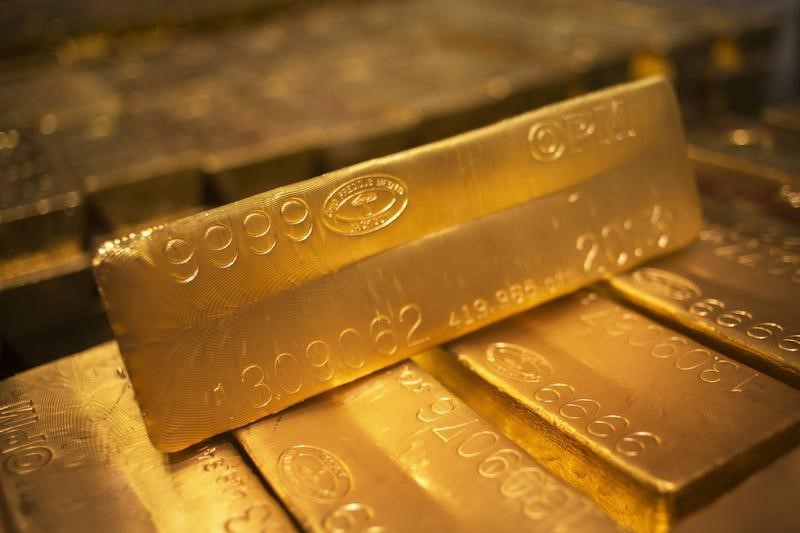Investing.com - Gold prices held on to gains on Wednesday, after better than expected U.S. employment and trade data supported the case for higher interest rates.
Prices were already higher as investors sought refuge after North Korea said it had conducted a successful nuclear test and as tensions between Saudi Arabia and Iran continued to mount.
Gold for February delivery on the Comex division of the New York Mercantile Exchange tacked on $6.10, or 0.57%, to trade at $1,084.50 a troy ounce as of 13:45 GMT, or 8:45AM ET. It earlier rose to $1,088.60, the most since December 4. On Tuesday, gold inched up $3.20, or 0.3%.
Payroll processing firm ADP said non-farm private employment rose by 257,000 last month, easily surpassing expectations for an increase of 192,000. The economy created 211,000 jobs in November, whose figure was downwardly revised from a previously reported increase of 217,000.
While not viewed as a reliable guide for the government jobs report due on Friday, January 8, it does give guidance on private-sector hiring.
A separate report revealed that the trade deficit shrank 5% to $42.4 billion in November. Analysts had expected the U.S. trade deficit to narrow to $44.0 billion in November.
U.S. exports fell 0.9% to $182.2 billion, the lowest since 2011, while imports dropped 1.7% to $224.6 billion.
Risk sentiment weakened after North Korea confirmed that it had conducted a nuclear test and said that it won't give up nuclear capability unless U.S. abandons its hostile foreign policy towards the country.
Markets were also jittery amid growing tensions between Iran and Saudi Arabia, following the execution of a prominent Saudi Shia cleric.
The yellow metal is up 2% so far this week as market players sought refuge amid instability in the Middle East and fresh concerns over global growth.
Also on the Comex, silver futures for March delivery shed 4.6 cents, or 0.33%, to trade at $13.92 a troy ounce during morning hours in New York.
Elsewhere in metals trading, copper prices slumped on Wednesday, after data showed that activity in China's services sector grew at the slowest pace in 17 months in December, the latest indication that the world's second-largest economy may be losing steam.
The Caixin services purchasing managers' index fell to 50.2 last month from November's reading of 51.2, disappointing expectations for an uptick to 52.3.
The report came after a similar survey earlier in the week showing that Chinese manufacturing activity contracted for the tenth straight month in December, and added to fears over the outlook for the world’s number two economy.
The Asian nation is the world’s largest copper consumer, accounting for nearly 45% of world consumption.
